This Month in Mobility: September Public Transit Chatter
September 28, 2020
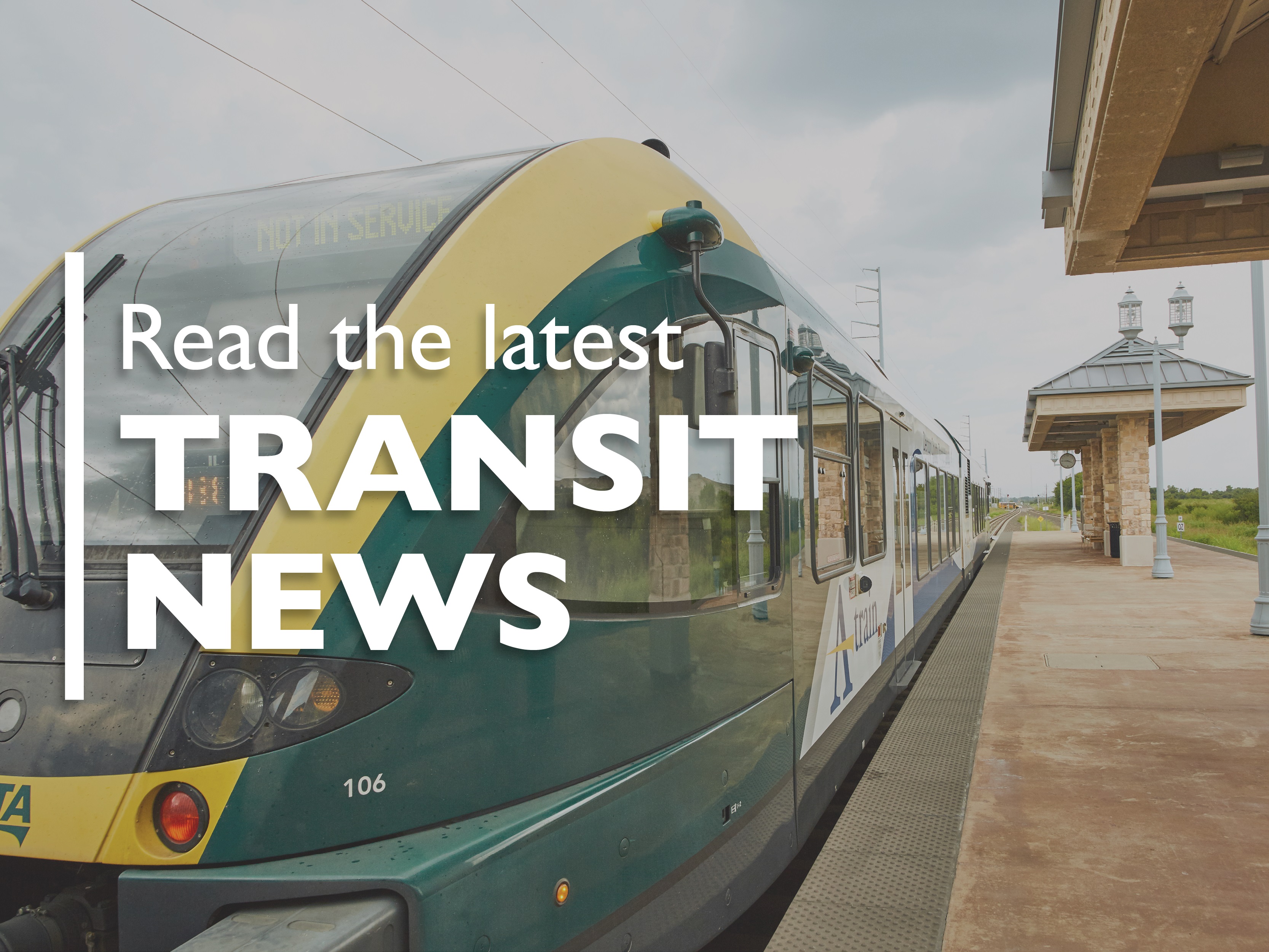
The leaves are turning, and crisp weather is in the air which can only mean one thing – fall has finally come around! Just like the change in weather, the state of mobility continues to adapt to the ever-changing landscape and rider behavior to provide reliable services that are essential to our communities. For your monthly reading pleasure, we’ve gathered some of the top public transit stories that we hope pique your interest that you can check out below.
Texas high-speed rail line gets federal approval
There seems to be a light at the end of the tunnel! This month, the Federal Railroad Administration (FRA) approved Texas Central’s high-speed train project that will transport passengers from Dallas to Houston in 90 minutes. The Texas high-speed rail line received the Rule of Particular Applicability and the Record of Decision, moving it one step closer to starting construction slated to kick off early 2021.
There’s still a catch as the federal Surface Transportation Board still must approve the project before construction can begin. However, Texas Central is confident the project will move forward. The company estimates construction for the project will take up to six years, with a total cost of around $20 billion. The high-speed train will use the same technology as the Shinkansen bullet trains in Japan, which can reach speeds of more than 200 mph.

The high-speed rail line is still a controversial project as property owners in rural areas of Central Texas have been resistant to progress, where the railroad would travel through. According to Texas Central Railroad, they already have control of more than 600 parcels of land — approximately 40% of the parcels they need for the project — as well as sites for stations in Dallas, Houston and the Brazos Valley.
Do you want Texas Central to receive the last “green light” to move forward with construction?
LA Metro considering fare-free public transit
Due to the coronavirus (COVID-19), many public transit agencies are experiencing a drastic decline in ridership. Some agencies are counteracting this trend with the potential of fare-free transit. LA Metro serves the most populous county in the U.S. and is considering a radical change – eliminating bus and rail fares altogether.

LA Metro’s CEO Phillip Washington launched a task force earlier this month to study what he has dubbed the “Fare-less System Initiative, or Operation FSI.” Washington hopes the system could go fare-free as soon as 2021.
The three main goals LA Metro is striving for should it eliminate fares from its system include:
- Improving equity and economic parity for riders, a large portion of whom live under the federal poverty line
- Creating an incentive to take public transit over personal vehicles, which would alleviate L.A. County’s crippling congestion
- Rethinking public space and how cities are managing streets with more people moving in communities without cars.
If LA Metro moves forward with free fare across their bus and rail system, they would join the Kansas City Area Transportation Authority (KCATA) that announced last December that they would eliminate fares in 2020. As fare-free public transit continues to pick up steam, do you think more transit agencies will hop on board and follow suit?
APTA launches Health and Safety Commitments program with nation-wide support
It’s no secret that the public transit industry is taking the COVID-19 crisis seriously! A key indicator of this is the launch of the American Public Transportation Association’s (APTA) new “Health and Safety Commitments” program. The program serves as the public transit industry’s pledge to riders and employees it will adhere to best practices for safe transportation throughout the COVID-19 crisis. More than 100 transit agencies have committed to this effort.
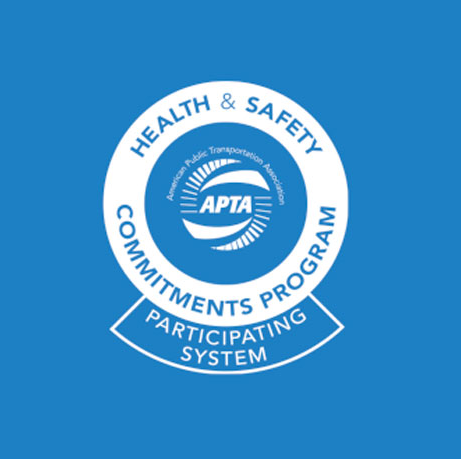
The program was developed based on a survey of nationwide public transit users who were asked what specific measures would boost their confidence in riding transit. The answers helped identify four key areas where transit systems can focus their efforts to earn the confidence of riders:
- Following public health guidelines from official sources
- Cleaning and disinfecting transit vehicles frequently and requiring face coverings and other protections
- Keeping passengers informed and empowered to choose the safest times and routes to rides
- Putting health first by requiring riders and employees to avoid public transit if they have been exposed to COVID-19 or feel ill
DCTA is one of the 100 transit agencies that has committed to this program. Our top priority is providing safe mobility options for all the communities we serve, and we’ve been diligent in monitoring and enhancing our safety measures since the onset of COVID-19 to ensure our riders and employees are safe.
Have a question or comment about one of the stories we featured, or is there a big headline you think we should have included? Leave your comment below. We’d love to hear from you!
More News to Use
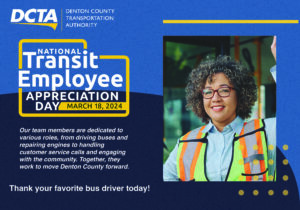
Happy National Transit Employee Appreciation Day!
March 18, 2024
Join Denton County Transportation Authority in celebrating National Transit Employee Appreciate Day, March 18, 2024! Every year, DCTA celebrates bus and rail operators for their endless dedication and commitment to serving Denton County. This year, we are extending.

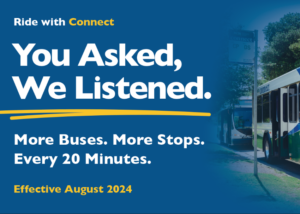
Upgrades coming August 19th – More Buses. More Stops. Every 20 minutes.
August 30, 2024
Upgrades coming August 19th will provide even more convenience for those taking the Connect Bus—all with the same excellent customer service you’re used to. If you are using our GoZone services between 7 AM and 9 PM, and.

Sign up for Updates
"*" indicates required fields









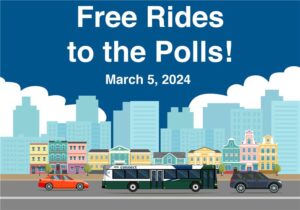
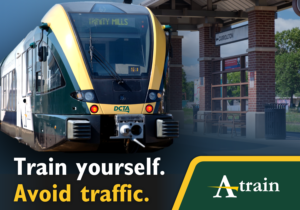

 Follow us on Twitter
Follow us on Twitter